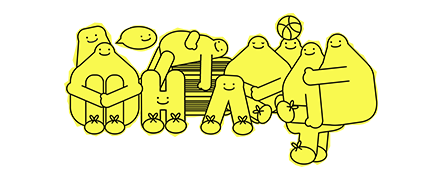Preventing Addiction During Your Studies
Lectures and examinations, study-nights and part-time jobs—student life can be very demanding. Even things that we tend to associate with freedom and independence like living on your own for the first time, making new friends, going to parties, and traveling can feel overwhelming.
Not everyone finds a healthy way out of this feeling (also see self-care and stress). Some people develop addictive behavior.
Definition
Addiction is when a person engages in harmful and compulsive behaviors that they find difficult or even impossible to stop. An addiction can refer to a type of consumption, for example of alcohol, drugs, or narcotics. However, people can also develop a behavioral addiction. This means, that they become addicted to gambling, the use of digital and social media, or eating, for example.
Signs of addiction
There are several signs that indicate addictive behavior. For instance:
- Compulsion
The thoughts of an addicted person constantly revolve around the addictive substance or behavior. The feeling that they cannot live without the substance (anymore) and a strong desire for it are overwhelmingly powerful. - Loss of control
People who have developed an addiction lose control over the use of the substance or the frequency of their addictive behavior. - Quitting seems impossible
Despite drastic consequences, people who are addicted cannot give up consuming the addictive substances or the addictive behavior.
- Increasing drug doses
Over time, people with addiction feel the need to increase the drug dose to achieve the same effect. - Withdrawal symptoms
People with addiction show symptoms like sweating, shaking, cramps, but also pain, insomnia, or hallucinations when they stop taking drugs. - Social withdrawal
People who have developed an addiction tend to increasingly withdraw from their social environment over time.
Risk factors
Many different aspects come together when a person develops an addiction: Biological and/
People who live in a social environment that tolerates or sugarcoats addiction also lack role models that inspire them to choose a different path, e.g. parents, siblings, or friends.
It is scientifically proven that drug consumption causes effects in the brain that are experienced as more rewarding than natural rewards like praise and success (cf. Nature Neuroscience 2024). Additionally, the organism continues to intensify and reinforce the consumption of alcohol, drugs or medication by increasing the release of dopamine.
Therefore, some scientists now classify addiction as a physical or a brain disease (cf. Suchttherapie 2022 , Thieme).
Prevention
The best strategy to prevent addictions is to educate people on addictive substances and behaviors as early as possible. People who learn about topics such as addiction, a healthy diet and how to maintain a balanced lifestyle (sufficient exercise and sleep) during their school days and have positive role models to refer to are more likely to be able to develop strategies to prevent addiction.
Disclaimer: We would like to use these pages to shed light on the topic of mental health and studying. Our staff members in the various departments and institutions of the university are committed to ensuring that you remain physically and mentally healthythroughout your studies. To help you achieve this, we provide some helpful ideas and recommendations on the following pages. We also list contact persons and counseling services offered by the university or external organizations. Please note, however, that the information, tips, and recommendations provided are not a substitute for psychotherapy or medical treatment. For this reason, you will also find information and links to therapeutic services and emergency assistance outside the University of Mannheim.
We would also appreciate any comments and feedback on the pages at onlineredaktionuni-mannheim.de.
